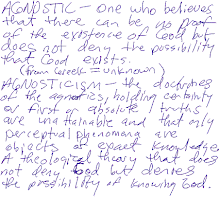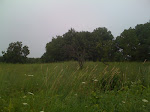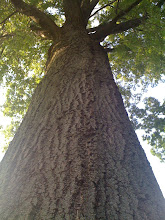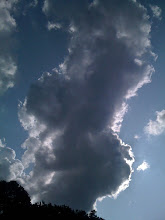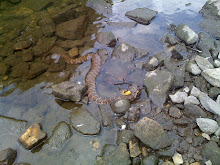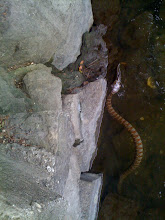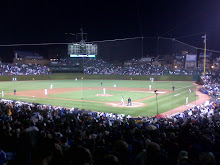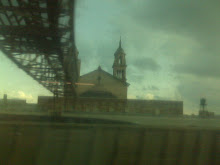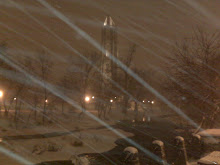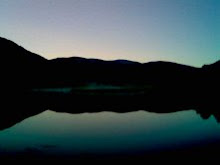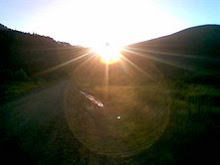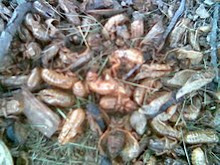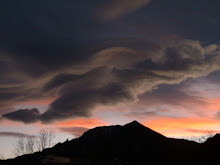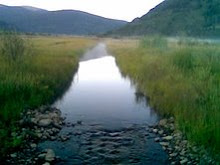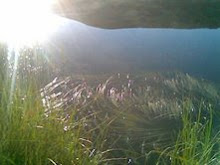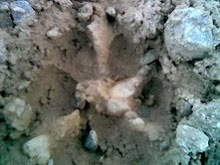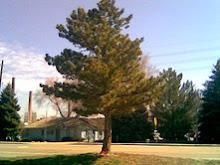Remembering Ilias and
Frank
Thirteen years ago today, in just a couple hours, my father
slipped away, peacefully at home. The
sun was shining on a clear, crisp winter afternoon, snow on the ground, the
blue jays screamed, harolding his passing, mother was on the phone with Aunt
Mary Jane, Tim and I were out coffin shopping (aside on this to follow),
Chaunce was at work. My father hadn’t
been alone without his wife or one of his kids by his side for over a
month. I was in from Colorado and I
slept on the floor next to his hospital bed.
We took shifts, we made 3,000 calorie Ensure shakes that he would sip
and the brothers would drink… Dad chose this moment, in control up the last, to
go; to go quietly without pomp or circumstance, his last exhale left his body in
front of his caregiver. Dad wasn’t much
for showing weakness and he didn’t like being sick, he wasn’t going to die in
front of his wife and kids, so he chose this quiet moment and he left.
A couple weeks ago we celebrated the life of Dr. Ilias
Karas. The passing of another pillar of
positive patriarchy surfaced all of the feelings I had when my Dad was dying;
the moment I found out he was dead. Tim
and I had stopped for a quick bite to eat at Joe Daniels, Mom called, “he’s
gone”. We stood up, left our order and
sped home. We were home within ten
minutes of his passing, but it felt like he had been gone longer, the world
felt different, like Nick Karas said, part of me was ripped out and taken from
here to beyond. There was an emptiness that I felt inside me, I saw his body, still warm, but Dad was clearly not there.
I felt so privileged to be a part of the weekend of remembrance with the Karas/Dennehy Clan,
eating, laughing, drinking, singing… his children eulogized him each in their
brilliant authentic way, his children and grandchildren, wife, family and
friends the true testament to an incredible man, the legacy of Dr. Ilias Karas lives on. I was one of the neighborhood kids who saw
Dr. Karas, not for tonsils, but for sinus surgery. Dr. K. once saved the life of a colleague of
my father who had throat cancer. Slight
in stature, big in skill, intelligence, welcome and persona.
A long-time family friend, Dr. MacEntee, eulogized him as well;
the two men could not be more different in some ways, one from Greece, the
other from Ireland, one “agnostic” the other Irish Catholic, but both committed
to healing and serving others. Dr. MacEntee said Ilias could keep a joke going for years. Dr. MacEntee was with Dr. K in the final
hours and he reasoned with him to essentially hedge his bets, “what if you’re
wrong Ilie”, few could communicate with Dr. Karas at this point as
communication was very difficult, but still Ilias responded, “It would be
dishonest.”
In addition to being one of the legendary father figures and
professional figures during my youth, later in my life Dr. Karas became my hero from a far for
having the courage to question, to openly admit agnosticism in a society that
boasts separation of church and state, but for all practical purposes, demands
conformity in faith and many other things.
Both men died in the bleak midwinter, Ilias died at 79, Dad at 80. Rest in
peace Ilias, rest in peace Frank. Different
men, strong men, fathers who left a legacy no matter what does or does not come
next.
To read about my father go to 2010 at right. Tuesday, January 26, 2010, Remembering Frank E. Cassidy.
http://chicago.suntimes.com/news/7/71/292171/dr-ilias-karas-survived-wwii-deprivation-greece-find-success-america
Dr. Ilias Karas, who survived WWII
deprivation in Greece to find success in U.S., dies at 79
Dr. Ilias Karas liked simple food and complex debates.
He loved an unadorned Mediterranean feast, dipping
bread in homemade yogurt and snacking on figs and oil-cured olives. He enjoyed
spirited discussions of politics and history, something friends and relatives
attribute to his having grown up in Athens, which gave the world democracy and
the philosopher Socrates, who used questions to get to the big answers.
Dr. Karas, 79, died Dec. 9 of kidney disease at his
retirement home in Naples, Florida.
Outgoing, irreverent and funny, he was the kind of man
who’d roast a lamb on a spit and invite the entire neighborhood over to enjoy
it.
Though he visited Ireland every year with Marie, his
County Kerry-born wife of 49 years, he found fecund joke fodder in Ireland’s
rainy weather and spotty central heating. Once, when his Irish brother-in-law
urged him to come in the house, Dr. Karas replied, “No, I’m warmer standing
outside than I am inside.”
He loved spending time at his condo in Acapulco, staring
at the waves and luxuriating in the warmth, which reminded him of Greece.
Dr. Karas liked studying the markets and monitoring
his investments. He read the Wall Street Journal from cover to cover, and he
wouldn’t make plans on Friday nights when “Wall Street Week” was on TV. He
bought farmland in Lemont and later sold it for development. The chair of
otolaryngology at Advocate Christ Medical Center, he was the picture of a
successful physician.
But Dr. Karas never forgot the deprivation he
experienced as a Greek child in World War II.
“I’d say, ‘Dad, c’mon, enjoy yourself, why are you so
frugal?’ ’’ recalled his son, Nick Karas. “He said, ‘I feel like at any moment,
it could possibly be taken away.’ ”
He survived the Axis occupation of Greece, when German,
Italian and Bulgarian forces carved up the country and starvation ruled in his
hometown of Athens. An estimated 300,000 Greeks died.
“He saw people starve to death on the streets that
didn’t have family,” his son said. “They literally were provided with no food,
and you banded together with family and close friends, and if you didn’t have
that, you literally starved to death.”
What may have helped the Karas family survive was that
his butcher father had contacts in the meat business. But their diet consisted
almost exclusively of bread, yogurt and water, his son said. On a good day,
they had olives.
What little food there was went first to the Germans
rolling by in tanks, or quislings who cared more for full bellies and political
advancement than national pride.
The young Ilias Karas also spent two and a half years
in the hospital after contracting polio, which left him with a limp. But he
continued his studies and was double-promoted. He went on to medical school,
and once he emerged from the University of Athens, his parents “thought the
best would be for him to go to the United States,” his son said.
In 1963, he came to Chicago because of ties to Greek
churches here, his son said. He shortened his surname, from Karagiannopoulos to
Karas. He used to say, “People talked about how they immigrated to this country
with $1, $5, $10 to their name — I came here with negative $300 because I owed
a friend in Athens for my airplane ticket over.”
As a young resident at Edgewater Hospital, Dr. Karas’
resources were so limited he didn’t have the money to return to Greece for his
father’s funeral when he was hit by a car in Athens that same year.
Though he came to America on a medical student visa, a
brief window — perhaps a month long — allowed medical students like him to
apply to stay on, his son said. Dr. Karas filled out the papers. A friend, who
missed the deadline, had to return to Greece. “My dad always told me, take
advantage of everything you can, because it might not be here tomorrow,” his
son said. “He thought it was the best country in the world.”
He and a nurse, Marie Dennehy, fell in love. They
married and took off a month each summer to bring their four children to visit
relatives in Ireland and Greece. Mr. Karas was the only one of his five
siblings to immigrate. His wife had five brothers and sisters in Ireland. The
trips were glorious for their children, who played with an estimated 60 Greek
and Irish first cousins.
Eventually, he became head of ear, nose and throat
medicine at Advocate Christ Medical Center. “He was wonderful with patients,
tremendously popular; very gentle,” said a friend, Dr. Peter MacEntee. As
teens, his children became used to hearing from friends, “Your dad took my
tonsils out.”
The Karases raised their family in Palos Heights and
Palos Park. He taught his wife how to make yogurt and how to season fish the
Greek way, with lemon and oregano. He told his children how the Greek hero and
military genius Alexander the Great conquered much of the known world by age
25.
Often, Dr. Karas worked till 9 p.m. He and his wife
recharged by taking their family to Acapulco for Christmas each year. He also
enjoyed trips to Africa, Australia, India, and going on cruises.
In addition to his wife and son, Dr. Karas is survived
by his daughters, Katherine Karas Murphy, Marilynn Karas Borock and Jennifer
Karas Maconochie; sisters, Ritsa Anagnostou and Stella Karagiannopoulos; a
brother, Marios, and 13 grandchildren. A mnimosino, a Greek memorial service 40
days after death, is planned. A wake will be held from 5 p.m. to 9 p.m.
Saturday at Hills Funeral Home, 10201 S. Roberts Rd., Palos Hills. A memorial luncheon
is scheduled at noon Sunday at Palos Country Club in Orland Park. His family
plans to spread his ashes in Acapulco.









